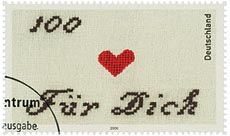When to use the informal "you" in German (duzen)
One of the most important questions about German is when to use "Sie" (the formal "you") and when to use du/ihr (the informal "you").
Let's try and clear this up!
When to use "Sie"

- It's the German form of address in professional contexts (especially with clients or suppliers), but "du" is used sometimes with colleagues
- With strangers
- With neighbors
- Non-family people, who are older than you
When to use "du"
- With friends
- With family
Intermediate form: Capitalized "Du"
Often, to show respect for someone that you used du with, "Du", "Dich" and "Dir" are capitalized even though official German grammar rules say that it should not be capitalized.
Kannst Du kommen?
Can you come?
Moving from "Sie" to "du"
When you wish to use "du" with someone, you ask:
Wollen wir uns duzen?
Should we use "du"?
Usually, the older person asks the younger person.
Audiovisual supplement
To conclude this section, we'll listen to the melodic song "Und wenn ein Lied" by Xavier Naidoo
Next Lessons:
home > : German alphabet | Eszett | The date in German | Time | Happy Birhday | Saying thank you | Apostrophe | German National Anthem | How to write a letter in German | German Jokes | Carols
Suggestions to Help You | Difficulties with learning German | Greetings